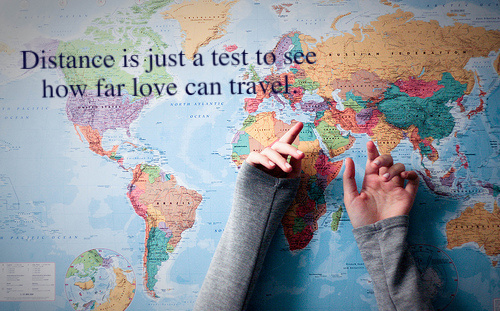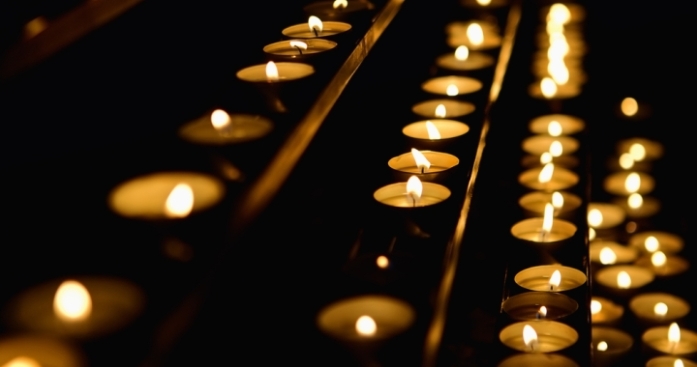
When doing your research about moving, living, or studying abroad, you’ll undoubtedly find that experienced expats have tons of cliché tips we’re willing to share about our ups and downs. There’s a hefty handful of common stories that get recycled, all of which are key preparations for any expat in the making. Among the many experiences you’ll read about and have to brace your britches for, perhaps the most commonly referenced is “culture shock.” Culture shock, which is more accurately referred to by psychologists as “acculturative stress,” can be roughly translated as the stress we feel when we’re suddenly confronted by a new environment, complete with new foods, new laws, new languages, new social norms, etc. In sum, culture shock is that paralysing fear that scares you $h1tless because you’re in a place that neither your body nor mind are familiar with, and the following process of dealing with this (sometimes vomit-inducing) fear until you adjust.
In a recent article about the complicated realities of moving abroad, Geeraert and Demoulin- two psychology researchers at University of Essex who study the effects of acculturative stress- highlight how some of the complexities of culture shock differ between students and other migrants. Authors Geeraert and Demoulin argue that students are “typically highly motivated, they are placed in local families, and they receive support from the exchange organisation throughout the experience,” and point out that “these circumstances will be very different from many other migrant populations.” (This distinction will become clear in a minute…)
Reverse Culture Shock
What you won’t typically find on Dr. Google, though, is what is called “reentry” or “reverse culture shock,” which refers to the culture shock one experiences when migrating back to their home country. Often times, this adjustment period comes as an unfortunate surprise to those returning from their lives abroad. As Margaret Wang points out in her book about culture, preparing students for this re-adjustment period should begin before they ever leave their home turf. But as she also points out, most universities and study abroad programs don’t offer what she calls “reentry training,” and thus often utterly fail to prepare students for the shock they’ll experience when they return home.
Reverse culture shock is basically another form of acculturative stress that takes place when coming home. Living abroad for any extended period of time inevitably tests your limits, expands your comfort zone, and gives you exposure to the world in ways that eventually become your comfort zone. But whilst you’re dabbling in new activities, consuming new foods and adjusting to new customs and territories, your loved ones back home are adjusting to your absence and moving on with their lives. And so, while most things remain the same, you come home to two very stark realisations: 1) Your close friends and family have built a life without you in it and 2) you’ve changed in ways that many of them won’t and/or can’t understand. Arguably the most difficult part of the re-adjustment process is the realisation that very few people back home understand what you’re going through.
I speak purely out of my own experience here, but I can not stress enough how important it is to try to prepare yourself for this process, keep in tune with your needs and reach out for resources when you need them. The first time I went through re-entry shock was as an undergraduate student when I returned from my quarter abroad in Dublin. Reintegrating to my normal routine after four months of eye-opening experiences was a process I slightly resisted and didn’t fully understand. Luckily for me, I also had my best friend and college roommate, who had just studied abroad in London, to share my misery with while we slept on air mattresses in our shared flat for the next 6 months.
Now, keep in mind that there are gravely significant differences between the experiences of students and other migrant populations. As Geeraert and Demoulin pointed out, students have the privilege of returning to a university that offers many health and wellness resources for anyone who struggles throughout (not to mention rapidly ongoing stream of events and projects to jump into and move forward through.) Those who are moving back home after working abroad, living abroad, or especially after having lived in asylum are going to have very different sets of resources and circumstances, and thus the process is going to look different based on their situations.
But the shared take-home message I’m trying to convey is that coming home is difficult because you are not the same person you once were; life abroad changes you, for better or for worse, and so relating to what you once called “home” isn’t going to be easy as you might expect. In lieu of this, it’s even more important to pay attention to your needs and honour them as they come up. Note: The tips I share at the end of this blog are accessible to people returning from all types of circumstance, and don’t require to you to have money or access to specific resources.
Graduate Depression
For students like myself who are returning after a full programme (i.e. an entire Master’s or Bachelor’s programme) abroad, however, there is an added stressor that needs to be recognised and prepared for, and that’s what bloggers now refer to as “post-college depression.” Often times, graduates who are suddenly confronted by the real world go through periods of melancholy while they readjust. In some cases, graduates can even exhibit serious signs of depression. Hannah Webster suggests in her recent article about graduates coping with depression that this period is often either instigated or affected by one’s loss of identity, sudden financial stress, unreasonable expectations and/or family pressure. (But really, what recent grad hasn’t cringed after being asked “What’s next?” for the umpteenth time?) Some authors argue that the unprecedented rates of student loan debt juxtaposed by spiking unemployment rates and the recent push against college graduates towards low-income jobs is also to blame.
Whatever the straw that breaks your back, the melancholy and depressive bouts students face after graduating can have severe implications. Stories (like this one) of students committing suicide after graduation seem to be popping up more and more as loan debts and defaults increase. Our futures are being capitalised on before we ever see the opportunity to make something of ourselves, and that reality has our generation in a global panic. To make matters worse, we YoPros are flocking to the big cities in search for our fleeting opportunities, leading to a rent market that is impenetrable and rent prices that are becoming astronomical- like London’s, which I could no longer afford by the time I returned to the U.S.
Makes for a bad combo
Why are you reminding me of these depressing realities, you might ask? Because the combination between readjusting to your own culture and transitioning from the comforting academic bubble back into the real world, can be really, really detrimental to one’s mental and emotional well-being. Especially if one is lacking the necessary resources (i.e., health insurance for therapy, which a broke post-grad would need insurance for) or the necessary social support (who have since moved on with their lives since you’ve left them for your adventures overseas.) Feeling sad and nostalgic about the place you’d begun calling home and somewhat worthless about your uncertain future and pitiful career prospects is not an ideal grab-bag of emotions to be experiencing all at once.
So, now what?
In the wise words of Baz Luhrmann, “the rest of my advice has no basis more reliable than my own meandering experience; I will dispense this advice, now.”
In my years of experience working with art therapists, psychologists, psychiatrists, social workers, yogis, fitness trainers, natural gurus, crunchy health-types and otherwise creative types, I’ve come to learn one very pervasive truth: self-care is important. Through the advice these friends have shared and lots of personal trial and error, I’ve pocketed a handful of trusted tips to pull out in moments just like these where the funk is real and the uphill before me is daunting.
1. Start a routine. Coincidentally enough, this is one of my greatest pieces of advice for getting through the initial culture shock, but it also works the other way around. Chances are that by the time you left your adventures abroad and repatriated to the homeland, you had struck up a routine in your old life. Coming home doesn’t mean you have to drop that routine. One of the best parts of going abroad is bringing what you’ve learned and the ways in which you’ve changed back with you. So, incorporating something you once did into your new life might be a really great way of reminding you that yes, it happened, and yes, you’re a better person for having had the experience. It also doesn’t have to be something you learned abroad; I will get real personal here and admit that my personal cure for tough transitions is Gilmore Girls. One episode each night. I MAKE NO APOLOGIES.
2. Make a plan. One of the toughest parts of returning is feeling that the most exciting part of your life has ceased. If this is the case, give yourself something to look forward to! You don’t need to drop your savings on a ticket right off the bat, but make a plan for the distant-enough-to-save-but-not-SO-distant future. Pick a timeframe, start planning your next adventure, enjoy doing research in the meantime, budget your life around it and just enjoy being part of the wanderlust community. Never again will you return from a trip feeling your travel bug has been sufficiently fed, but you will forever be planning ahead and giving yourself something to keep motivated with and it keeps you moving forward. Whatever your plan might be – adventures don’t always equal travel. Go get that PhD, start that business, get that thesis published, write that book, record that song, start that blog, etc. There are numerous ways to move forward in your life, the key is just to do the moving forward.
3. Find the beauty. After graduating with my Bachelors, I picked up a temporary job at a remote camp in the Pacific Northwest. I remember sitting in my room, staring at the world map on my wall with my very dear friend Shay Button while sharing our tales of burning inner wanderlust, and admitting that I sometimes felt something was missing because I wasn’t abroad. And what she said to me next I will never forget: “I know what you mean, and I think it’s why, no matter where I go, I try to experience the world through the same eyes I did when I was in Italy. I try to carry that open-hearted, open-minded wonder with me everywhere I go.” In that moment, she taught me how to take home one of the best experiences of living abroad we each have; pure, unadulterated, unwavering openness. So, I encourage you to bring this openness into your life in any and every way you can, and use it to find the beauty in things you once saw as dull an unexciting. Sometimes, finding beauty in the mundane is enough to transform our mentality and improve our whole perspective.
4. Write it down. Feeling über angsty? Feeling nostalgic about your times abroad? Missing those loose ends? Full of stories with no one to share them too? As unfortunate as this is, it seems that those who don’t share our experiences as travellers sometimes feel that we sound obnoxiously privileged and, at times, a bit patronising or condescending when we do try to share them. To be fair, they’re absolutely right; shoving tales from an experience that someone else may not have had the privilege of having down their throats is, in a sense, selfish and unfair. With that said, one of the most important forms of processing the experience and reintegrating back into your own culture is talking about it, is sharing it, is connecting with others through it. So write it down. Write it in a journal, a private blog, a public blog, create a scrap book, write a song or poem about it, a memoir, a novel, create a film or a slideshow with pictures. Do something that gets the memories and the feelings associated with them out of you and into something tangible that you can come back to as many times as you want. Then, if you so chose, you can share it to those who actively show their interest in hearing about and seeing.
5. Run, run, run. Let me start by saying that this is very much my personal way of dealing with rough transitions; I run. In fact, I arguably do 1-4 on this list while I’m at it because I start a new running routine that works me towards a goal (i.e., 10k or half marathon) and I use my running routes to find hidden treasures in my new (or old) surroundings. In fact, running has been shown to cure depression where medications can’t, and so it’s my main fall back and what I immediately turn to when I feel my general life-mood slipping into that unhealthy sort of deep. But running isn’t the only cure; I think the key take-home message is to find a way to incorporate daily or every-other-daily movement that elevates you out of your depression. Swimming, dancing, kickboxing, yoga (Yoga with Adriene’s 30-day Challenge is a great place to start!) are all great ways to keep your blood moving, your mood elevated, and your heart and mind healthy. Pick your poison, but push yourself to get out – even if it’s just a relaxed, calm, half hour walk around the neighbourhood, every bit helps!
Share your tips, or ask away! If you’re about to head home, what have you done to prepare? Or what would you like to prepare for? If you’ve studied abroad and come back, or you’ve done the living abroad and the whole shebang, what was your experience coming home? What did you do to cope?
Sharing is caring!









